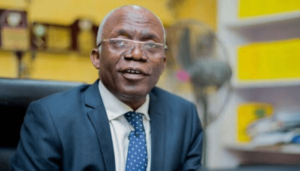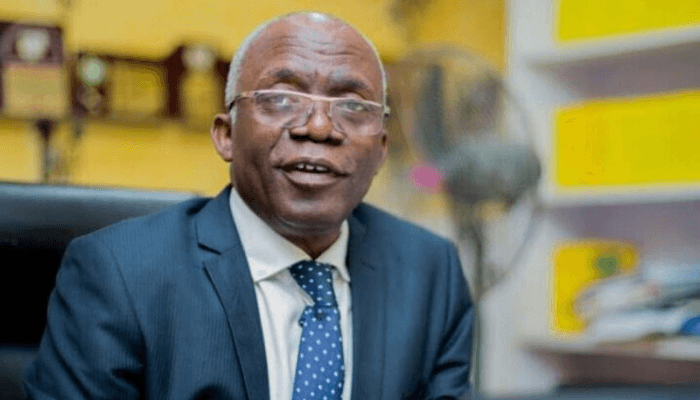
By Sunday Adigun
LAGOS—Human rights lawyer Femi Falana has disclosed that former President Umaru Yar’Adua halted the sale of the Port Harcourt and Kaduna refineries due to irregularities in the privatization process under his predecessor, Olusegun Obasanjo. Falana’s statement has reignited debate over the handling of Nigeria’s key national assets and the implications for governance and accountability.
Falana alleged that Obasanjo, in the final days of his administration, finalized deals to sell 51% stakes in the Port Harcourt and Kaduna refineries to Bluestar Oil, a consortium that included Dangote Oil, Zenon Oil, and Transcorp. The transactions, worth $561 million and $160 million respectively, were annulled by Yar’Adua, who believed they did not align with Nigeria’s national interest.
Obasanjo, during a recent interview on Channels TV, lamented the rejection of a $750 million offer in 2007 by Aliko Dangote to operate the refineries under a public-private partnership.
His claim was the funds were returned by Yar’Adua’s administration, which opted instead to let the Nigerian National Petroleum Company Limited (NNPCL) manage the assets. Obasanjo criticized the decision, implying it resulted in lost opportunities for the country.
Falana countered Obasanjo’s narrative, accusing him of breaching the Privatisation and Commercialisation Act, which designates the Vice President as the chairman of the National Council on Privatisation (NCP).
According to Falana, Obasanjo sidelined then-Vice President Atiku Abubakar and assumed direct control of the privatization process. Falana stated that this procedural violation and the timing of the deals raised significant legal and moral questions about their validity.
Labor unions, including the National Union of Petroleum and Natural Gas Workers (NUPENG) and the Petroleum and Natural Gas Senior Staff Association of Nigeria (PENGASSAN), strongly opposed the sales.
They alleged that the nation had been shortchanged, citing the Port Harcourt refinery’s valuation of $516 million as significantly lower than its estimated $5 billion worth.
Their opposition culminated in a four-day nationwide strike in June 2007, which nearly paralyzed Nigeria’s economy. The strike was called off after Yar’Adua’s administration assured the unions of a thorough investigation into the transactions. Following the investigation, Yar’Adua nullified the sales, citing violations of due process and concerns over conflict of interest.
Falana also accused Obasanjo of a conflict of interest, claiming he had acquired significant shares in Transcorp through a “blind trust.” This raised further ethical concerns about the transparency of the privatization process. The alleged conflict led to public outcry, with critics questioning whether the sales prioritized private interests over national benefit. Many stakeholders, including labor unions and civil society organizations, argued that the transactions lacked transparency and accountability.
The controversy over the refineries reflects broader challenges in Nigeria’s management of its energy sector. Despite being Africa’s largest oil producer, the country has struggled with underperforming refineries, forcing reliance on imported petroleum products.
Obasanjo asserted in his interview that his administration had developed plans to address the challenges of the Port Harcourt, Warri, and Kaduna refineries. However, these plans were reportedly abandoned by successive administrations, contributing to Nigeria’s energy crisis.
Falana noted that the reversal of the refinery sales was a pivotal decision in the Yar’Adua administration, highlighting the importance of adhering to due process in public asset management.
The nullification of the transactions, which was never legally challenged, underscored the procedural lapses in the privatization process. Critics argue that such lapses erode public trust and undermine the credibility of economic reforms.
The legacy of the refinery transactions continues to shape discussions about Nigeria’s economic reform trajectory. While Obasanjo defends his actions as necessary steps toward privatization, critics maintain that the processes were flawed and lacked accountability.
For many Nigerians, the refinery saga underscores the broader struggle to harness the country’s oil wealth for sustainable development. As the nation seeks to address its energy sector challenges, the lessons from past missteps remain crucial.
The handling of the Port Harcourt and Kaduna refineries exemplifies the complexities of balancing reform with accountability, a challenge that continues to define Nigeria’s governance landscape.




